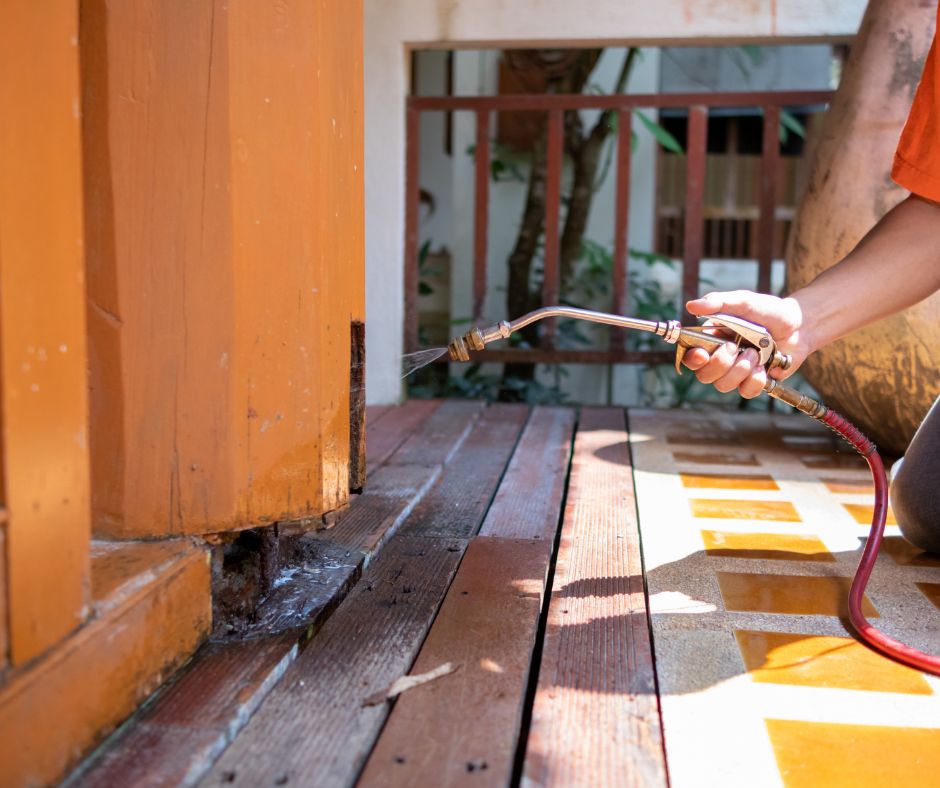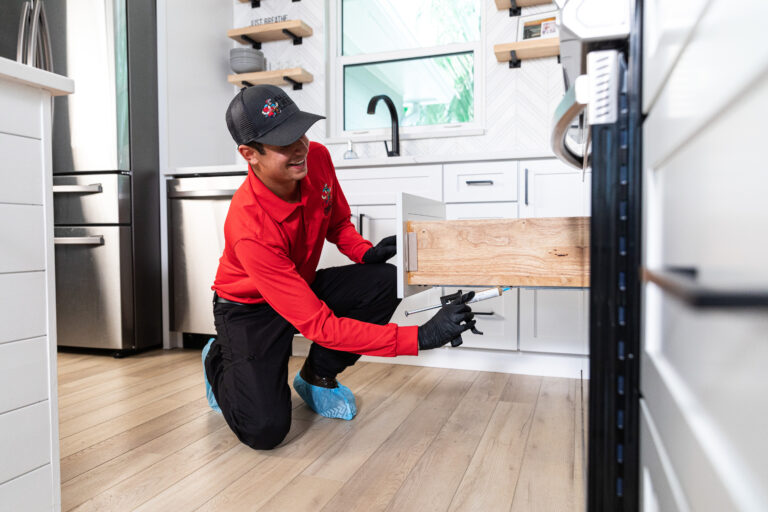Ant Exterminator Near Me: How to Get Rid of Ants Quickly and Successfully
Reveal the Relevance of Pest Control in Maintaining a Healthy And Balanced Atmosphere and Treatment Methods

The Role of Bugs in Ecosystems
Insects, often watched exclusively as annoyances, play a multifaceted function in ecosystems that is important for maintaining environmental balance. They add considerably to numerous environmental processes, including pollination, nutrient cycling, and bug control. For instance, many insect varieties, such as butterflies and , are necessary pollinators for a variety of plants, which consequently supports biodiversity and food manufacturing.
Furthermore, parasites act as victim for numerous predators, producing a critical link in food webs. This connection makes certain the survival of various types and helps control populaces within ecological communities (Termite treatment Port Charlotte). Furthermore, decomposer insects, such as specific beetles and fungis, are crucial in breaking down natural issue, thus enriching soil and helping with nutrition recycling.
On the other hand, while parasites can be beneficial, their overpopulation or intrusion right into non-native environments may interfere with these eco-friendly features. This intricacy highlights the value of comprehending parasite characteristics, as efficient bug management techniques should consider both their ecological roles and possible influences on human tasks. Balancing pest existence while reducing harm is essential for maintaining the honesty of environments and guaranteeing agricultural performance.
Health And Wellness Dangers Connected With Pests
The visibility of bugs in various settings prolongs beyond their ecological roles, as they also posture considerable health threats to pets and people. Numerous pests, consisting of rodents, pests, and parasites, are service providers of illness that can have serious health and wellness implications. Rats are known to transfer hantavirus and leptospirosis, both of which can lead to extreme respiratory system and renal problems, specifically.
Insects such as ticks and insects are infamous for spreading vector-borne conditions like malaria, dengue fever, and Lyme condition. These illnesses can lead to high morbidity and death rates, especially in prone populaces. Furthermore, parasites like insects and roaches can exacerbate allergies and asthma, adding to respiratory issues in people, specifically those with pre-existing problems.
Furthermore, the existence of bugs can bring about mental stress and anxiety and pain, impacting overall well-being. Contamination of food and surfaces by insect droppings and stays can cause foodborne ailments, highlighting the importance of maintaining sanitary conditions. For that reason, comprehending the health and wellness dangers related to parasites is important in identifying the need of efficient bug administration methods to secure animal and human wellness.

Advantages of Effective Bug Control
Reliable parasite control is essential for preserving a healthy and risk-free setting, as it consistently reduces the many dangers connected with bug problems. Among the key advantages of reliable bug monitoring is the decrease of carcinogen. Parasites such as insects, cockroaches, and rats are vectors for conditions that can impact both animals and humans. By regulating these populaces, the chance of illness transmission is substantially reduced.
In addition, efficient pest control safeguards building and frameworks from damage. Several insects, like termites and woodworker ants, can trigger extensive structural damages that may need costly fixings. By proactively handling these services, property owners and invasions can protect their investments.
An additional significant advantage is the enhancement of total lifestyle. A pest-free atmosphere contributes to psychological well-being and minimizes stress and anxiety related to infestations. Reliable pest control fosters a safer environment for animals and youngsters, making certain that homes continue to be sanctuaries cost-free visit this website from hazardous chemicals and disease-causing organisms.
Common Insect Control Techniques

In the realm of pest monitoring, different techniques are used to fight infestations efficiently. These techniques can be generally categorized into 3 main strategies: cultural, mechanical, and chemical controls.
Social control includes modifying methods to decrease pest facility, survival, and recreation. This may consist of crop turning, proper cleanliness, and environment control, which jointly create Our site an environment much less for pest expansion.
Mechanical control uses physical methods to eliminate bugs (Termite treatment Port Charlotte). Strategies such as obstacles, vacuum cleaners, and traps are commonly used to directly remove insects from an area. This method is especially efficient for handling rats and bugs without the usage of unsafe chemicals
Chemical control entails the application of chemicals to take care of parasites. These materials can be classified right into herbicides, pesticides, and fungicides, each targeting specific types of pests. It is crucial to use these chemicals judiciously, adhering to safety guidelines and policies to reduce potential injury to non-target types and the atmosphere.
Each insect control technique has its benefits and constraints, and frequently, an incorporated strategy combining multiple approaches yields the very best outcomes in keeping a pest-free setting.
Sustainable Insect Monitoring Practices
Lasting insect administration methods incorporate a series of strategies created to decrease ecological effect while efficiently controlling bug populaces. These practices focus on making use of eco-friendly techniques over chemical pesticides, therefore lowering the threat of injury to non-target varieties, consisting of helpful insects, wild animals, and people.
Integrated Bug Monitoring (IPM) is a cornerstone of lasting techniques, combining biological, social, mechanical, and chemical strategies to take care of pests. As an example, biological control involves presenting natural predators or bloodsuckers to reduce insect populations. Social practices, such as plant turning and polyculture, interfere with pest life cycles and boost ecological community durability.
Mechanical approaches, such as barriers or catches, can successfully avoid parasite accessibility without chemical treatment. In addition, preserving healthy ecosystems with correct dirt administration, plant health and wellness, and biodiversity can normally mitigate insect problems.
Education and recognition are vital components, encouraging neighborhoods and individuals to recognize bug risks early and execute preventive actions. Termite treatment Port Charlotte. By fostering an alternative technique that stabilizes parasite control with environmental integrity, sustainable bug management methods not only secure crops and structures but additionally add to a much healthier atmosphere for future generations
Final Thought

Understanding the wellness dangers linked with bugs is essential in recognizing the need of effective insect management approaches to safeguard human and animal health.
Efficient insect control is necessary for keeping a secure and healthy atmosphere, as it regularly reduces the many risks connected with pest invasions.Integrated Insect Management (IPM) is a foundation of sustainable practices, incorporating biological, cultural, mechanical, and chemical strategies to handle pests. By recognizing the role of bugs, termite solution recognizing affiliated health and wellness dangers, and using varied treatment methods, a sustainable strategy to pest management can be achieved. Integrated Bug Administration (IPM) highlights an alternative approach that mitigates damage to helpful organisms while effectively regulating parasite populaces.